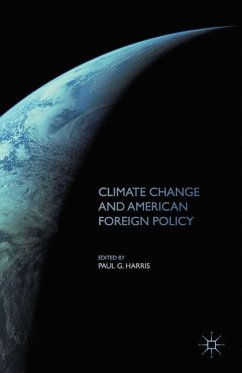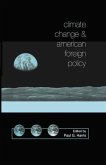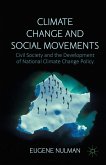Now available in an updated 2016 edition, Climate Change and American Foreign Policy examines the actors, institutions, and ideas shaping U.S. policy on climate change (global warming). The book begins by introducing the issue of climate change in the context of U.S. foreign policy, before critically evaluating U.S. policies and actions. It then analyses the domestic and international politics of U.S. climate change policy, covering such issues as science, the presidency and Congress, nongovermental organizations, diplomacy and the international negotiations leading to the Framework Convention on Climate Change and the Kyoto Protocol. The book concludes by looking at the role of international norms in shaping U.S. climate change policy.
"Climate Change and American Foreign Policy loosens the deadlock between Realpolitik and the dangerous realities of climate change." - Aubrey Meyer, Global Commons Institute, London.
"This book's diverse investigations into the reasons for the slow pace of the American policy response to the climate problem also show the possibilities and limits of various theoretical approaches to policy analysis. Given the importance of climate change issues and the obvious need for a constructive American policy, this book is a timely contribution that will stimulate scholarly discussion about both pressing practical policy matters, as well as the current conceptual questions in studying international environmental policymaking." - Simon Dalby, Carleton University, Ottawa
"This book's diverse investigations into the reasons for the slow pace of the American policy response to the climate problem also show the possibilities and limits of various theoretical approaches to policy analysis. Given the importance of climate change issues and the obvious need for a constructive American policy, this book is a timely contribution that will stimulate scholarly discussion about both pressing practical policy matters, as well as the current conceptual questions in studying international environmental policymaking." - Simon Dalby, Carleton University, Ottawa








